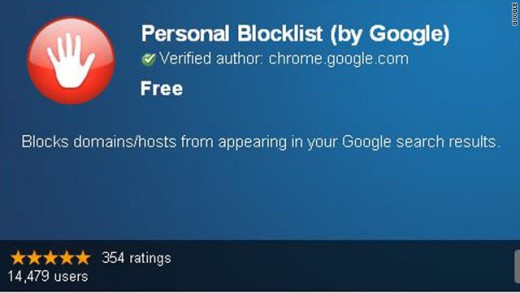The New Algorithm; Should We Be Afraid?

In a Nutshell
When I heard about Google's new Algorithm, being dysnumerate, I got queasy.
I had to read the data a few times, translate it into near non-numerate terms to get the understanding.
As the creed of cyberspace is that anything that can be hacked will be hacked , anything that can be exploited will be exploited , so many publishing sites were slapped with the label: "Content Farms".
This term signifies crummy writing as wallpaper for advertisements.
This wouldn't be a problem if those who create the wallpaper on which to stick the ads hadn't figured out how to use Search Engine Optimization, (SEO) words. These 'magic' words fooled Google into thinking that this is a worth reading article, not a flushable.
When we entered a term into a Google search, we often got inappropriate stuff. We've clicked on a link which was to take us to information instead we're in the middle of the cow pasture.
This is because a Crap Writer knows how to title, how to tag, and how to fool Google into thinking this badly written wallpaper is an academic article. Further, as it owns Adsense, it had to pay for visits to the rubbish site it recommended.
So, at first I wasn't afraid.
A closer look
The problem with unmoderated writing sites is that some people put up really crappy stuff with SEO keywords, surround it with Ads, and publish. They don't care that their action effects everyone who uses that site.
It is not just WriterX who will be scorned, it is SiteX which published that dreck.
For example, years ago there was a writing site called Triond which had a subsite called 'Webupon" which, in ancient days when Stumbleupon existed, it would not allow.
Reddit is another site which virtually consigned everything on a Triond site to the toilet.
This rejection is often the first response a publishing site will get when it allows crap to be published. And it should act on it. But most didn't.
Although the majority of users on Triond did not write crap and there were many great articles and great writers, Triond, with its lack of moderation, caused its own demise.
Triond went down because it was labeled a 'Content Farm'. And when a writing site gets that epithet, views plummet because Google's won't list them.
Let's take Another glance...
Looking at the top of this article you see a Blue Screen of Death.
This means, for example, when a user is fed up with a site, and decides to ban it, nothing posted there will turn up in a search.
As bad as this is for a writer in relation to individual users, the word 'devastating' might not be inappropriate when it comes to Google in general.
When Google decides a site is a Content Farm no one will ever be directed there.
Did I mention?
Did I mention that Google owns Adsense?
When one posts an item on a publishing site, Google festoons it with Ads. People who go to the site will cause Google to disperse funds.
If the site is a real site and the user is really looking at the page, there can be no complaint. But if it's a crapsite which is 75% ads and the prose is a flushable, why should they pay?
It would be like paying for a commercial to be run in a commercial on television.
Think of it like this.
A lot of folks are going to be watching the Superbowl. Some might not get up to use the toilet during the ad break so will see the ad. But paying to run a commercial during a commercial in a crapshow is a waste of value.
Not many people are watching the crapshow, and as soon as the commercial comes on they're out of the room.
Should we Be Worried?
Hubpages has taken note of Google's change in 'algorithim'.
If one posts an article about George Washington on site that Google considers a Content Farm it will go on the last page.
A few million hits for George Washington, are turned up by a Google. The article posted on the Content Farm is on page 1,400,000. Not likely anyone will click on it.
If a site has quality work, so that maybe only 10% is crap that slipped under the radar, well, that's negligible.
Most Content Farms did little to change their status. They continued to publish whatever is submitted until they collapsed.
If they had acted, perhaps they would still exist.








